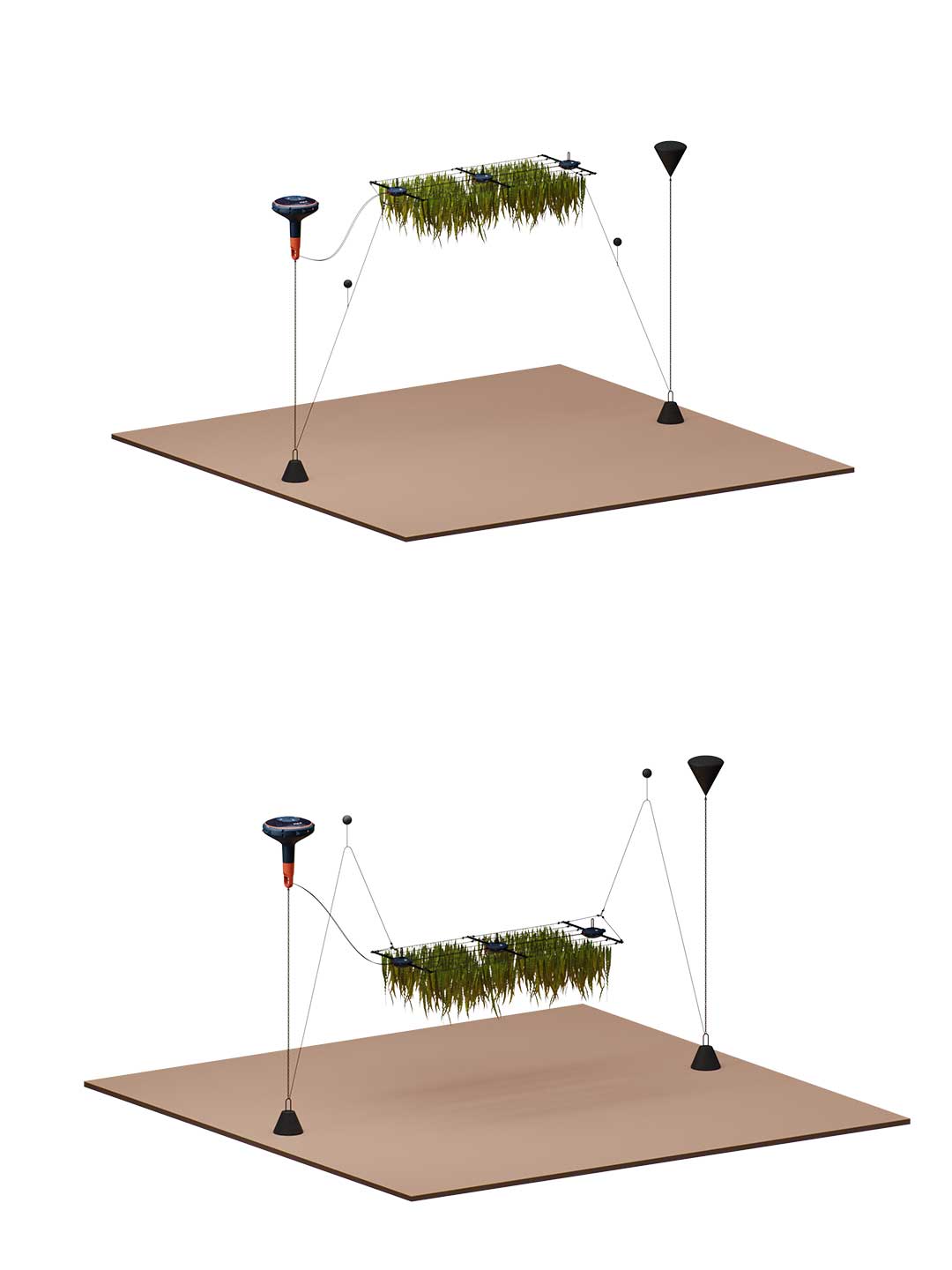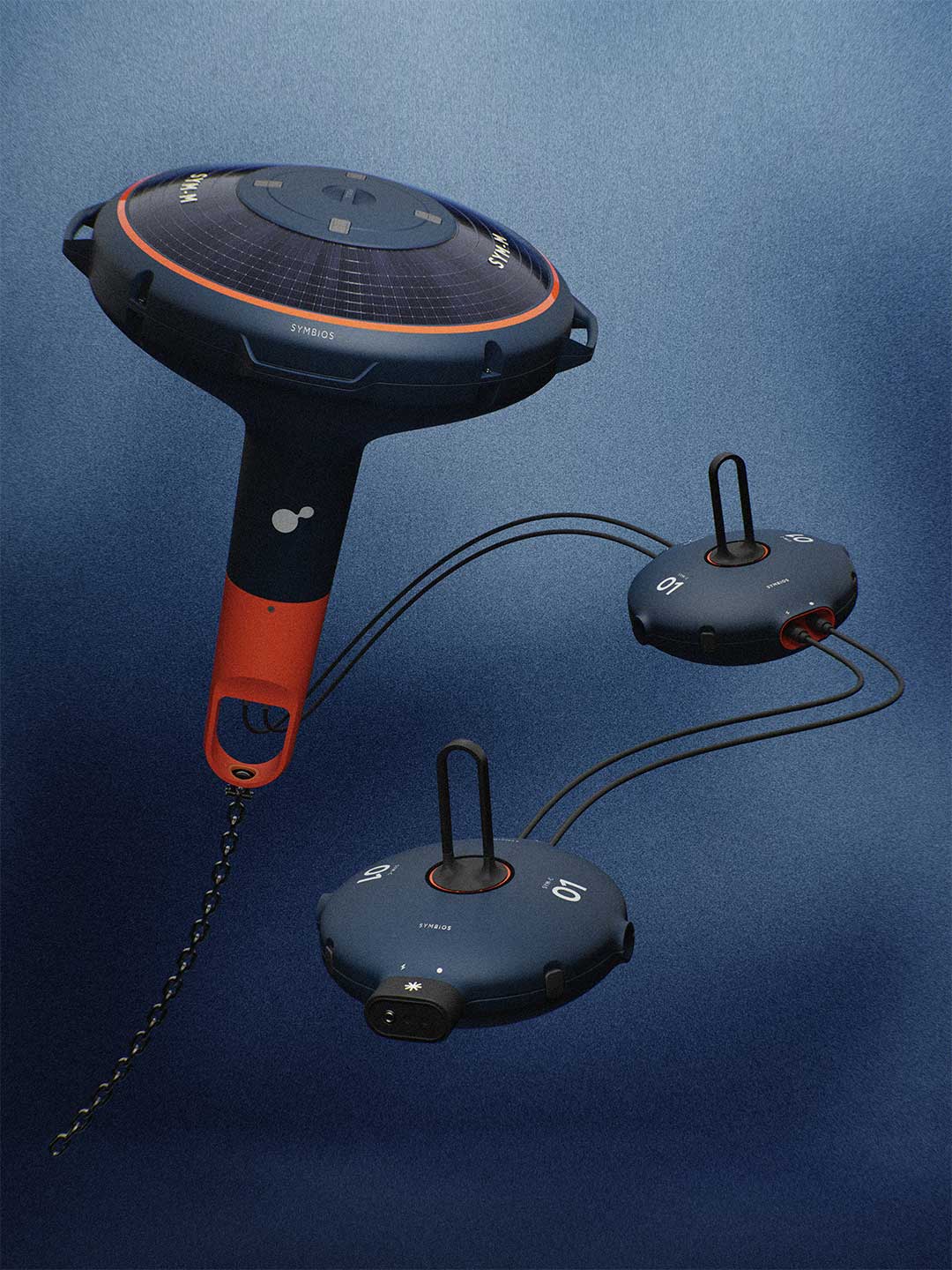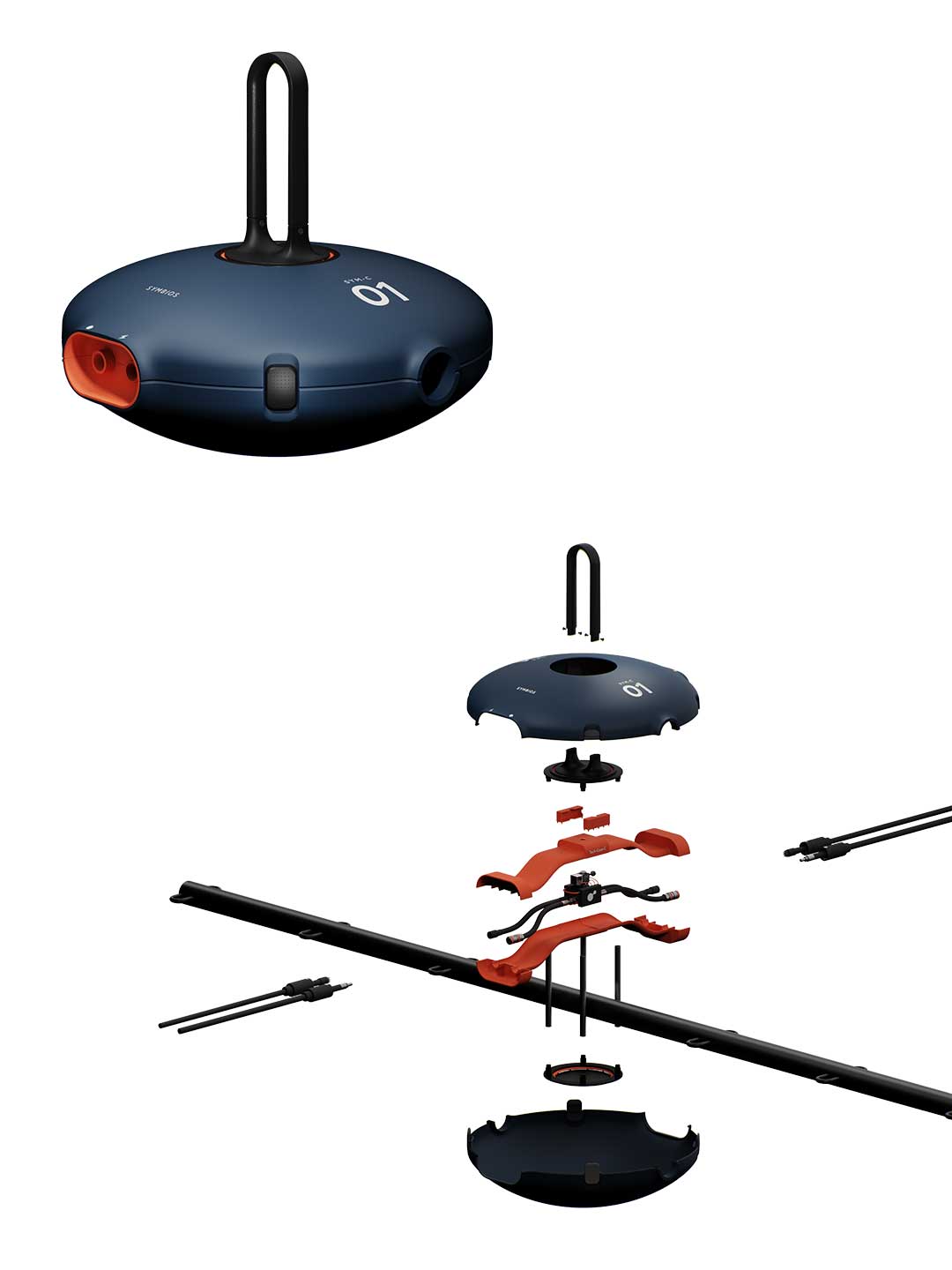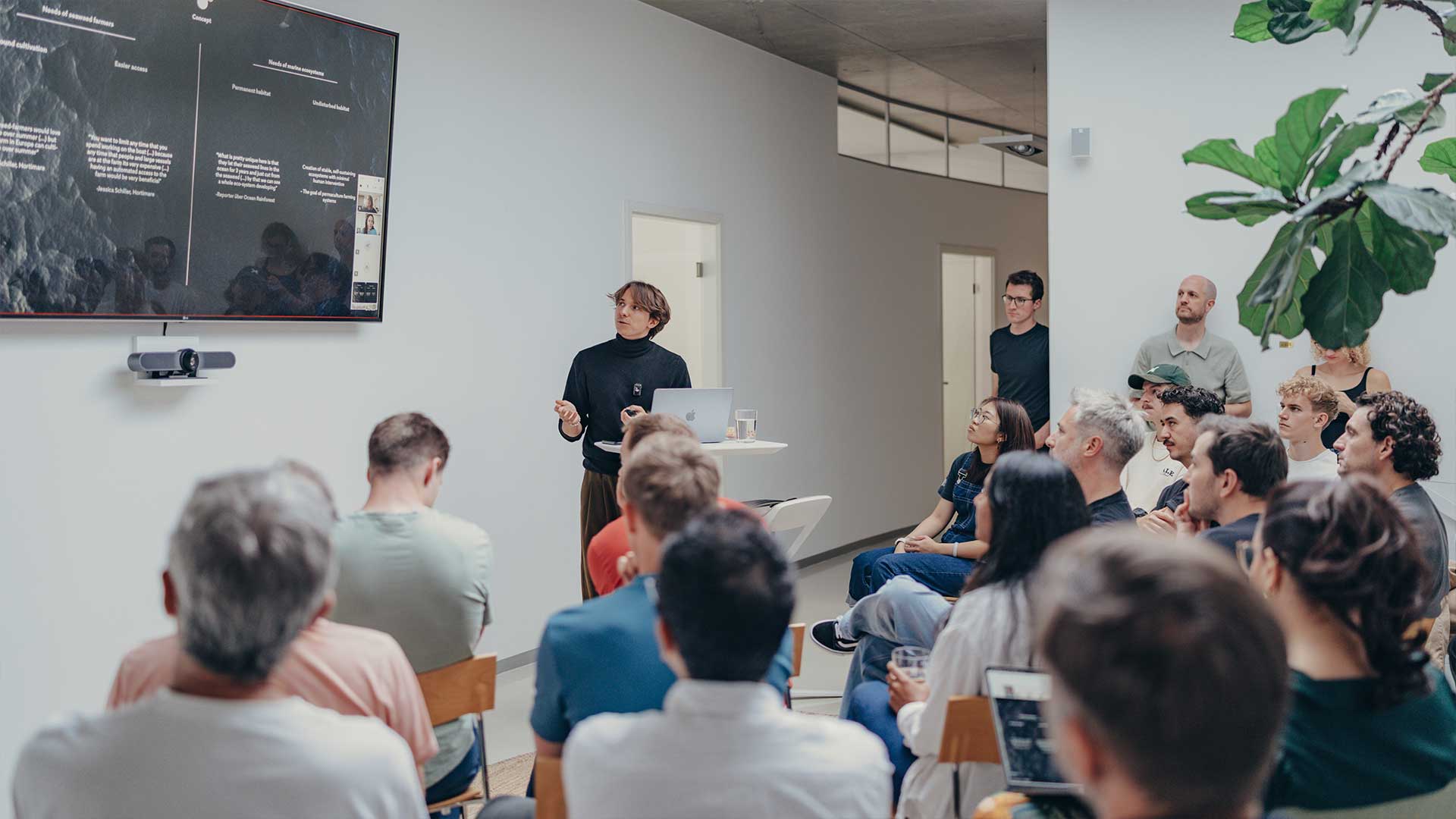

At the Intersection of Ecology and Innovation. In a world grappling with rising global food demands and environmental collapse, Symbios offers a radically new approach to ocean farming—merging innovative product design with ecological stewardship. Developed as part of a Bachelor's thesis at Bauhaus University Weimar, in collaboration with PHOENIX Academy, Aaron Mooser created a concept of an intelligent farming system to help seaweed cultivation flourish sustainably, year-round, and with minimal disruption to marine ecosystems. Rooted in the values of business design and design for wellbeing, Symbios envisions a future where aquaculture could do more than feed humanity, but nourish biodiversity.
The inspiration behind Symbios is grounded in one essential truth: Oceans are vital to life on Earth. Covering over 70% of the planet, they absorb nearly one-third of carbon dioxide emissions and produce more than half of the oxygen we breathe. And yet, these ecosystems remain vulnerable, often overlooked in conversations around sustainable food systems.
As ocean farming expands, the question becomes: will we replicate the environmental costs of industrial agriculture, or will we learn from nature and design product innovations that respect life below water?
Designed for seaweed farming in Northern Europe, Symbios uses a central mother buoy linked to twelve daughter buoys that automatically regulate the depth of cultivation lines via air chambers. This allows seaweed to be submerged in cooler waters during summer, enabling year-round growth. By submerging the farm plus using partial rather than full harvesting, the farm becomes a continuous habitat for marine life. Additionally, the partial harvest reduces labour for farmers by removing the need for seasonal replanting. A sensor suite collects environmental data, which is sent to a digital dashboard for remote monitoring—reducing boat visits, operational costs and disturbance to marine habitats. This system doesn't just optimise yield—it transforms the farm into a self-sustaining, biodiversity-supporting marine habitat. By introducing intelligent automation and ecological harmony, Symbios positions itself as a blueprint for the next generation of ocean farming technologies.
The project emerged from a deep, research-led inquiry: Can design protect marine biodiversity while supporting human needs?
To answer this, Aaron Mooser —working alongside PHOENIX design studio—conducted twelve expert interviews spanning marine biology, seaweed farming, and ocean engineering. The process was enriched by iterative prototyping, 3D modelling, and constant expert validation. The result is a product that was strategically designed to balance technical feasibility with ecological insight.
This thesis collaboration reflects PHOENIX's commitment to mentoring the next generation of designers tackling global challenges.



At PHOENIX, we believe that product design is a tool for ecological innovation. Our work with Symbios showcases how design can regenerate rather than exploit—supporting both economic resilience and environmental health.
We are proud to support projects like this, where strategic design, technology, and nature converge to rethink what's possible.
Symbios represents what we stand for at PHOENIX: human-centred, future-forward design that respects planetary boundaries. It challenges conventional systems and offers a blueprint for coexistence between humans and oceans.




We invite you to learn more about our work in design for wellbeing, innovation, and sustainability by exploring other projects and insights on our website.
Aaron Mooser, designer of Symbios, would like to extend special mention and thanks for the invaluable help during the project:
Sophie Steinhausen, Marine Biologist at PROOCEAN
Anna Jäkle, Engineer at GEOMAR for seagoing technologies systems
Jochen Körner, Marine Biologist and Science Communicator at the Fraunhofer Institute
Florian Stahl, PhD Student in Marine Botany at the University of Bremen
Kristina Hartwig, Managing Director of the Ocean Farm in Kiel
Felix Beslmeisl, Graduate Physicist
Jessica Schiller, Research Specialist at Hortimare
Kim Kristensen, Mechanical Engineer and CEO of Arctic Seaweed
Robert Balduhn, Technical Director at Frameworks Robotics
Dr. Esther Robbe, Scientist in Coastal Management at Alles Alge e.V.
Prof. Gerrit Babtist, Bauhaus-University of Weimar.
Klea Schlimm, artistic assistant at the Bauhaus-University of Weimar.